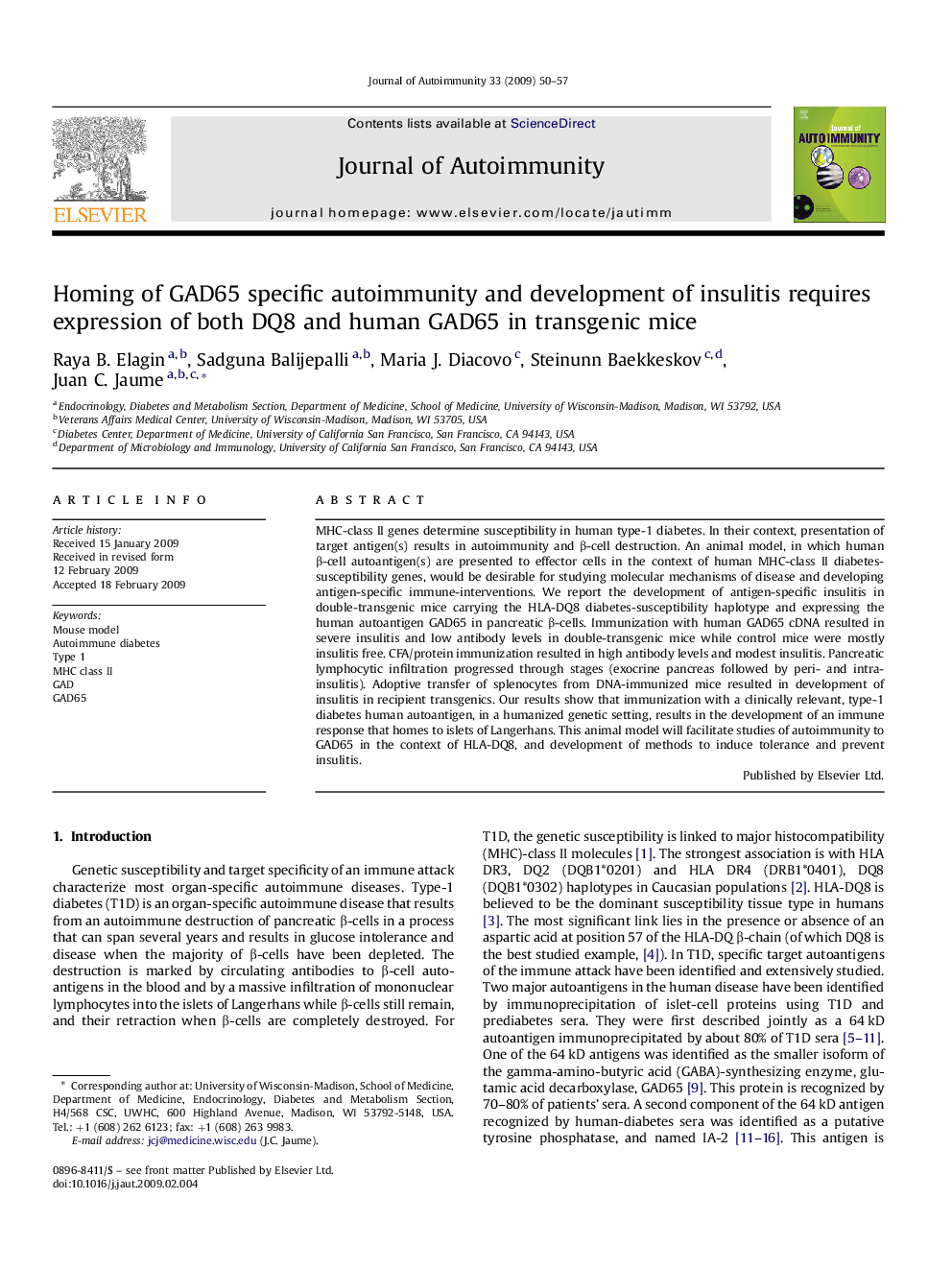| Article ID | Journal | Published Year | Pages | File Type |
|---|---|---|---|---|
| 3368108 | Journal of Autoimmunity | 2009 | 8 Pages |
MHC-class II genes determine susceptibility in human type-1 diabetes. In their context, presentation of target antigen(s) results in autoimmunity and β-cell destruction. An animal model, in which human β-cell autoantigen(s) are presented to effector cells in the context of human MHC-class II diabetes-susceptibility genes, would be desirable for studying molecular mechanisms of disease and developing antigen-specific immune-interventions. We report the development of antigen-specific insulitis in double-transgenic mice carrying the HLA-DQ8 diabetes-susceptibility haplotype and expressing the human autoantigen GAD65 in pancreatic β-cells. Immunization with human GAD65 cDNA resulted in severe insulitis and low antibody levels in double-transgenic mice while control mice were mostly insulitis free. CFA/protein immunization resulted in high antibody levels and modest insulitis. Pancreatic lymphocytic infiltration progressed through stages (exocrine pancreas followed by peri- and intra-insulitis). Adoptive transfer of splenocytes from DNA-immunized mice resulted in development of insulitis in recipient transgenics. Our results show that immunization with a clinically relevant, type-1 diabetes human autoantigen, in a humanized genetic setting, results in the development of an immune response that homes to islets of Langerhans. This animal model will facilitate studies of autoimmunity to GAD65 in the context of HLA-DQ8, and development of methods to induce tolerance and prevent insulitis.
